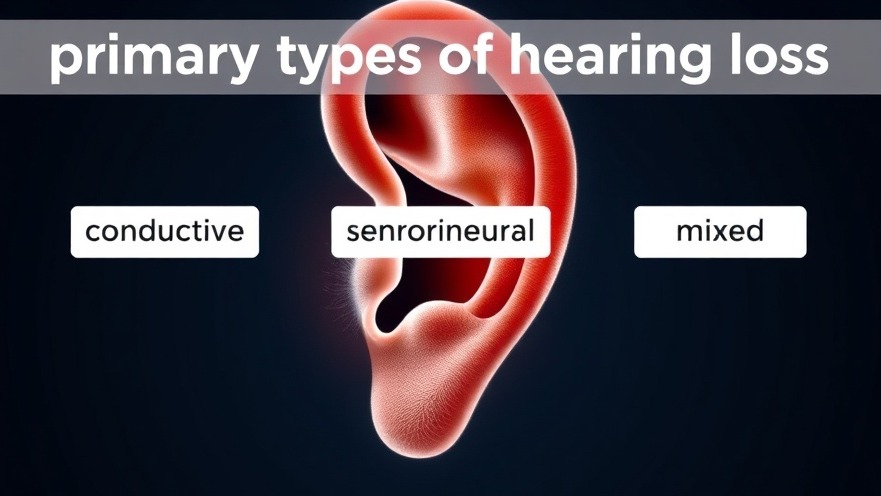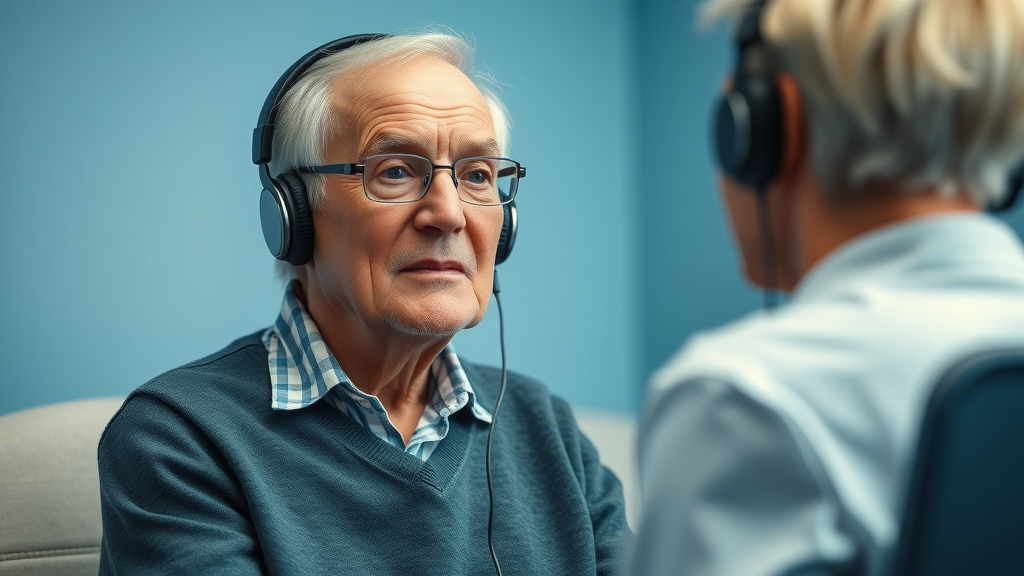Have you ever wondered if there’s a way to restore your hearing without medical devices or surgery? What if improving your hearing naturally was not just possible—but easier than you think?
In a world surrounded by noise and constant distractions, hearing loss can sneak up on anyone. But here’s the good news: there are surprising ways to optimize your hearing health, many rooted in science, habit, and daily wellness. This article pulls back the curtain on natural secrets to improve hearing naturally, giving you practical steps to support your hearing and overall quality of life.
Can You Really Improve Hearing Naturally? Exploring the Truth
Pose the question: Can hearing loss be reversed by natural remedies?
Address why more people seek to improve hearing naturally
Introduce the idea of empowering readers to take charge of their hearing health
When facing hearing loss, it’s only natural to wonder: Is it truly possible to improve hearing naturally? Many people are turning away from quick fixes and looking for ways to protect and enhance their hearing on their own terms. With concerns about reliance on hearing aids, fear of surgery, and a desire for more control over their well-being, interest in natural remedies and preventive measures continues to grow.
But can hearing loss genuinely be reversed by natural methods? The reality is, while some types of hearing loss can be managed or improved with simple lifestyle changes, not all hearing problems can be fully reversed. The empowering truth is this: taking action with natural strategies can make a remarkable difference. By learning how to improve hearing naturally and adopting healthy daily habits, you can maximize your hearing potential and overall wellness. Let’s dive into the trusted secrets that put your hearing health back in your hands.

Unlocking the Secrets to Improve Hearing Naturally
In this guide, you’re about to discover practical steps, natural remedies, and science-backed habits to improve hearing naturally . We’ll outline the importance of ear health and hearing loss prevention—all rooted in supporting the ear canal and the powerful auditory system that connects sound to the brain. You’ll learn which nutrients support hearing health, how to protect your ears from loud noise, and why auditory training can actually retrain your brain to better process sound. Backed by scientific studies, experts agree that combining healthy lifestyle improvements with mindful self-care can offer significant benefits for those looking to improve or maintain their hearing. So whether you’re aiming to prevent hearing loss or seeking gentle improvement, these simple secrets will give you the tools to hear your best, every day.
Comparing Ways to Improve Hearing Naturally: Methods, Effectiveness, and Evidence | ||
Method |
Effectiveness |
Scientific Evidence |
|---|---|---|
Healthy Diet (antioxidants, vitamins, minerals) |
Supports ear health, helps prevent hearing loss, may slow age-related hearing loss |
Moderate to strong (numerous studies on nutrients and hearing) |
Auditory Training/Brain Exercises |
Improves sound processing and listening skills, especially with mild loss |
Strong (proven in many clinical trials) |
Noise Protection (earplugs, volume control) |
Very effective in preventing noise-induced hearing loss |
Strong (well-established in occupational and public health research) |
Mindfulness/Stress Management |
Helps blood flow and reduces negative impact on hearing |
Moderate (emerging evidence links stress and hearing health) |
Home Remedies (herbal teas, natural oils, etc.) |
Limited to anecdotal improvements, helps some symptoms |
Weak to moderate (few clinical studies) |
Understanding Hearing Loss: Foundation for Improving Hearing Naturally
To improve hearing naturally , it’s crucial to understand the basics of hearing loss. Hearing loss can affect anyone, regardless of age, and can impact your ear canal, auditory nerve, and even the brain’s sound processing abilities. Before diving into remedies, let’s explore the science so you can make informed choices based on the type and cause of hearing difficulty you might face.
Not all hearing loss is the same. Some people benefit from natural remedies and prevention, while others may require professional support. By understanding the key differences, you become better equipped to protect your hearing health, prevent hearing loss, and choose the best strategies to improve your hearing.
The Three Main Types of Hearing Loss: Conductive, Sensorineural, and Mixed
There are three primary types of hearing loss : conductive, sensorineural, and mixed . Conductive hearing loss occurs when sound cannot effectively travel through the outer ear canal to the eardrum and the tiny bones of the middle ear. Common causes include earwax buildup, fluid from colds, or infections. This type can often be treated or improved with medical intervention or, in mild cases, with natural remedies to support overall ear health.
On the other hand, sensorineural hearing loss involves damage to the inner ear (cochlea) or to the auditory nerve. This is the most common permanent type, often caused by aging, prolonged exposure to loud noise, genetics, or injury. While natural remedies may not restore full hearing in these cases, improving circulation, reducing noise exposure, and supporting inner ear health can still make a difference in minimizing further decline. Mixed hearing loss is a combination of both, requiring a multi-pronged approach to treatment and prevention.

Common Causes of Hearing Loss and How to Prevent Hearing Issues
Hearing loss can develop due to a variety of reasons, including repeated exposure to loud noise, ear infections, genetics, aging, and even traumatic injuries. Loud noises in concerts, workplaces, or through personal audio devices are among the most significant preventable causes. Additionally, untreated infections can lead to permanent damage in the ear canal or auditory system. Even poor circulation and chronic health issues can contribute to a gradual decline in hearing health.
Fortunately, many day-to-day habits can help prevent hearing loss. Simple actions such as wearing ear protection in noisy environments, keeping the volume low on headphones, treating ear infections promptly, and keeping your ears clean—while avoiding harmful cotton swabs—are essential for protecting your ear health. Regular checks with a hearing specialist ensure you can spot problems early. Understanding these natural risks and making conscious lifestyle choices is foundational to your journey to improve hearing naturally .
Top Natural Remedies to Improve Hearing Naturally
Natural remedies for hearing health focus on nutrition, protection, and daily wellness practices. These approaches, supported by both tradition and scientific research, can help you protect existing hearing and support the overall function of your ears and auditory nerve. With practical, at-home steps, you can build habits that make a real difference in the way you hear the world.
Best Diet and Nutrients for Hearing Health
A key secret for anyone aiming to improve hearing naturally lies in what you eat. Scientific studies have shown that nutrients like antioxidants and vitamins A, C, and E support the tiny cells within the ear canal that process sound. Magnesium helps regulate blood flow to the inner ear, and zinc plays a role in protecting against age-related hearing decline. Foods like leafy green vegetables, carrots, sweet potatoes, oranges, fish, nuts, seeds, and whole grains help maintain your hearing health and may slow the progression of certain types of hearing loss.
Adding more fresh fruits, vegetables, and lean proteins into your daily diet boosts your ear’s resilience against damage. Omega-3 fatty acids in salmon and walnuts support the auditory nerve and brain connectivity. A diet rich in these nutrients is not a cure-all, but it can be a powerful ally in preventing hearing loss while supporting your goal to improve your hearing day by day.

Protecting the Ear Canal from Damage and Loud Noise
Loud noise is a leading contributor to preventable hearing loss. Sounds above 85 decibels, such as power tools, live concerts, or even busy traffic, can gradually damage the ear canal and sensory cells over time. The risk increases for those working in construction, manufacturing, or other noisy environments, but even everyday activities—like using earbuds at maximum volume—can take a toll on your ear health.
To protect your hearing, use earplugs or noise-canceling headphones in loud environments, take listening breaks during extended headphone use, and keep the volume at safe levels. Simple awareness and proactive strategies can prevent hearing loss—empowering you to maintain and even improve your hearing naturally for years to come. Reducing everyday noise stress not only preserves hearing but also enhances your concentration, mood, and overall quality of life.
Auditory Training and Brain Exercises to Improve Hearing Naturally
Auditory training is like a workout for your brain and ears together. These targeted exercises retrain your brain to better detect, distinguish, and process sounds—improving your ability to understand speech, especially in noisy situations. Research shows that regular auditory training can help people with mild to moderate hearing loss, as well as those using hearing aids, to better “decode” the sounds they hear, making conversation and everyday activities easier.
Many auditory training programs use apps or online platforms, offering games that test your ability to pick out words or tones buried in background noise. Some require just 10–15 minutes a day, focusing on tasks that target sound discrimination and memory. These brain exercises are particularly helpful for older adults, people adapting to new hearing aids, or anyone looking to support hearing health naturally.

Mindfulness and Lifestyle Habits for Long-Term Hearing Health
Improving hearing isn’t only about your ears—it’s tied to the whole body. Healthy blood flow, managed stress, and regular exercise all play a role in protecting the inner ear and supporting your body’s natural ability to repair itself. Mindfulness practices and relaxation techniques reduce the impact of stress hormones on the auditory system, while physical activity helps maintain optimal circulation to the delicate tissues inside the ear canal.
Making time for daily walks, gentle stretching, and mindful breathing are simple habits that pay off in hearing health and beyond. By taking a holistic approach, you nourish your mind and body, giving every part of your auditory system—from your ears to your brain—the best chance to stay sharp and responsive.
“Improving hearing naturally is not just about your ears – it's a holistic journey for your whole body.”
When to Consider Hearing Aids and Alternative Solutions
Sometimes, natural remedies and preventive care aren’t enough—especially for people with severe or progressive hearing loss. This is where hearing aids and cochlear implants come in. Far from being a last resort, these technologies can work hand-in-hand with your natural efforts to help you hear and connect. Today’s hearing aids are smaller, smarter, and better than ever at amplifying speech and reducing background noise, supporting your goal to improve hearing naturally without isolation.
Cochlear implants and other ear implants can restore partial hearing in people with profound sensorineural loss, offering a new lease on life. By combining the best of modern technology with holistic wellness, you create a powerful team in your fight for better hearing health and independence.
Hearing Test: Identifying Hearing Problems Before They Worsen
The first step toward effective hearing improvement is early detection. A regular hearing test can catch issues before they grow into major problems, allowing you to address changes with medical help or natural remedies right away. Hearing specialists can precisely measure the type of hearing loss you have—be it conductive, sensorineural, or mixed—and recommend the best course of action.
By making hearing checks a routine part of your health care (just like eye exams or dental visits), you equip yourself with the information needed to take proactive steps. Whether you address minor issues with home remedies or pursue further evaluation, every action you take helps to improve your hearing and preserve the precious sounds of life.

Ear Implants and Future Treatments for Hearing Loss
Cochlear implants and other ear implants represent a leap forward for people with hearing loss that doesn't respond to traditional hearing aids. These devices bypass damaged cells of the inner ear and directly stimulate the auditory nerve, giving many people the chance to experience sound again. As technology advances, new options like gene therapies, regenerative medicine, and even stem cell approaches are on the horizon—offering hope to those who wish to improve hearing naturally and technologically.
Staying informed about these advances—and discussing all options with your ear care professional—ensures you’ll have access to every available resource for your unique needs. The future of hearing health is brighter than ever, blending natural improvement with breakthrough innovation.
Answers to Your Biggest Questions about How to Improve Hearing Naturally
Is it possible to improve hearing naturally?
This is one of the most asked questions— can you actually improve hearing naturally? The answer depends on the cause and extent of hearing loss. For mild cases, especially those due to noise exposure, poor nutrition, or minor blockages in the ear canal, lifestyle changes and natural remedies can help. A healthy diet with the proper vitamins, minerals and other nutrients, noise protection, and regular exercise have been shown by science to support hearing health. However, for sensorineural hearing loss caused by age or nerve damage, improvement may be limited. Still, healthy habits can slow progression and aid in daily communication, making them important for everyone seeking better hearing.

How to reverse hearing loss?
Reversing hearing loss is complex and depends largely on its cause. Conductive hearing loss (e.g., earwax blockages or infections) is often fully reversible with medical treatment and prevention. However, sensorineural hearing loss , usually from damage to the auditory nerve or inner ear, is less likely to be fully reversed. In these cases, a focus on natural support, healthy lifestyle changes, and professional intervention (like hearing aids or cochlear implants) is key. While total reversal isn’t always possible, meaningful improvements in hearing quality and daily functioning can be achieved.
What is the 1 3 6 rule for hearing loss?
The 1 3 6 rule is a standard in pediatric hearing health: babies should have a hearing screening by 1 month of age, diagnosis of any hearing loss by 3 months, and intervention (like hearing aids or therapy) by 6 months. This approach is vital for early diagnosis and rapid intervention, giving children the best chance to develop strong language and communication skills. For adults, this principle reinforces the critical importance of early action at any age.
How do you treat mild hearing loss in children?
Treating mild hearing loss in children starts with identifying the cause. If related to infections or earwax, simple medical intervention can often restore hearing. For ongoing challenges, a combination of healthy diet, noise reduction at home, and regular check-ups with hearing specialists is recommended. In some cases, hearing aids or early therapy support language development. Parents can encourage natural growth by creating quiet, communication-rich environments and supporting their child’s hearing health in every way possible.
Frequently Asked Questions on Natural Remedies, Hearing Loss, and Hearing Aids

Q: Can diet really help improve hearing naturally?
A: Yes, antioxidant-rich foods and certain minerals support ear health, improve circulation, and help prevent hearing loss.
Q: When should I consider hearing aids?
A: If you regularly struggle to hear conversations or notice a decrease in hearing, consult a care professional. Hearing aids can significantly improve quality of life, even alongside natural remedies.
Q: What are the simplest steps to prevent hearing loss?
A: Keep volumes low, use ear protection in noisy settings, manage stress, and maintain a healthy lifestyle to protect overall hearing health.
Step-by-step list: How to protect hearing every day
Lower the volume on headphones and entertainment devices
Wear earplugs or earmuffs in loud environments
Take listening breaks to rest your ears
Don’t insert objects (like cotton swabs) into the ear canal
Maintain a diet rich in antioxidants, vitamins, and minerals
Exercise regularly and manage your stress
Get regular hearing tests and consult a care professional as needed
Top 5 natural remedies to improve hearing naturally at home
Eat more leafy greens, berries, nuts, and seeds
Protect your ears from loud noise at concerts, work, or during hobbies
Try mindfulness exercises, like deep breathing or meditation, to lower stress
Practice auditory training or sound recognition activities
Keep your ears clean, but avoid inserting anything into the ear canal
Real Stories: Improving Hearing Naturally and Achieving Hearing Health
"After trying lifestyle changes and natural remedies, I noticed a remarkable difference in my hearing health."
Many people with hearing loss have experienced positive changes through simple, natural strategies—the key is consistency and a proactive mindset. Whether it’s a grandmother able to join family conversations again, or a young professional hearing more clearly at work, these real-life results prove the power of holistic hearing care. Combining diet, exercise, mindfulness, and smart sound exposure is helping people hear—and live—better every day.
Key Insights to Improve Your Hearing and Prevent Hearing Loss
Summary of top takeaways for readers seeking to improve hearing naturally
Protect ears from loud noise and take proactive health measures early
A diet rich in antioxidants, vitamins, and minerals nurtures hearing health
Auditory training can sharpen listening skills, especially with aging
Mindfulness and wellness habits support the entire auditory system
-
Regular hearing tests are key for early detection and optimal outcomes
Quick Reference: Natural Methods, Benefits, and Scientific Support | ||
Natural Method |
Main Benefit |
Scientific Support |
|---|---|---|
Healthy Diet |
Improves ear and nervous system health |
Strong |
Noise Protection |
Prevents permanent hearing loss |
Strong |
Auditory Training |
Sharpening sound interpretation |
Strong |
Stress Reduction |
Supports circulation and cell repair |
Moderate |
Regular Hearing Tests |
Early detection and intervention |
Strong |
Your Next Steps: Begin Your Journey to Improve Hearing Naturally Today
Start now—choose one simple tip from this guide and put it into practice today. Remember, even small changes can add up over time. If you have ongoing hearing issues, consult a qualified hearing specialist or care professional for tailored advice. Share your progress and inspire others. You’re empowered to improve your hearing naturally, one step at a time.

By incorporating these strategies, you can take proactive steps toward preserving and enhancing your hearing naturally.
 Add Element
Add Element  Add Row
Add Row 



Write A Comment